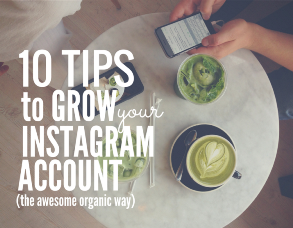
Google Adwords is the single best online advertising platform in the world. Advertisers spent over $ 60 billion in 2015.
Big data is responsible for Google’s success. It allows advertisers to narrowly target users and build highly profitable campaigns. Many advertisers are taking advantage of big data and Adwords campaign experiments to boost the ROI of their campaigns.
Savvy advertisers are collecting their own data to optimize their campaigns. If you’re a new AdWords advertiser, it is a good idea to learn about big data.
Why Big Data has Changed Google
Google has become even more dependent on big data over the last couple years. It tracks its users carefully, so advertisers can market to a narrowly targeted customer base. Here are some ways that Google uses big data.
New Demographic Targeting Options
In 2014, Google began allowing advertisers to target users by age and gender. Adwords advertisers could already target users by region, but these new targeting features are even more valuable.
Remarketing
Remarketing is still a fairly new feature on the Adwords platform. However, it has already proven to be very effective. Loews Hotels generated over $ 60,000 in sales from a $ 800 remarketing campaign.
Keyword Data
Google has always kept careful track of user searches. This data is aggregated to its advertisers, so they can easily choose the best keywords for their campaigns.
Using Big Data for your Adwords Campaigns
Adwords has a number of features that allow you to create highly targeted campaigns. However, they won’t do you any good unless you track them carefully to see what works.
You need to test different targeting options and monitor results. It’s a good idea to store data on the cloud, so you determine which demographics and keywords convert the best.
This is especially important for ecommerce brands, because they face unique marketing challenges. They usually need to store customer data on the cloud, especially if they are running app advertising campaigns. Here are a couple of reasons cloud storage is so important for many brands advertising on AdWords:
- Most local advertisers such as auto repair shops or real estate agents can make a handsome profit from only half a dozen leads. This isn’t the case for ecommerce companies, because their products tend to have lower conversion values. Many online companies sell lower ticket items and operate on very slim profit margins, so they need to keep their costs as low as possible.
- Ecommerce brands are marketing to a much larger customer base than local advertisers. In 2017, an estimated 63.4% of all Internet users will access the Internet through a mobile device. App developers also aren’t limited to geography.
- They need to carefully optimize their campaigns and push as much volume as possible. This requires a massive amount of data.
Local brands don’t need to generate as much volume with their campaigns. However, they are still using big data to improve their AdWords campaigns. p80 is a New York based company that optimized its AdWords campaigns with big data. They increased their revenue by 40% after starting a data-centric AdWords campaign a couple of years ago.
Other brands are beginning to recognize the benefits of using big data. Their results are encouraging more brands to advertise on Adwords. In the fourth quarter of last year, AdWords revenue rose to $ 21.3 billion. That figure will probably continue to rise as more brands recognize the benefits of leveraging big data for advertising.
Post first published on Catalyst For Business.
Digital & Social Articles on Business 2 Community(24)
Report Post




